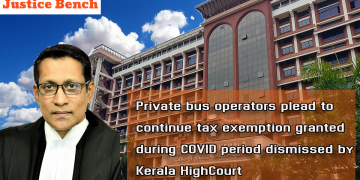FAMILY LAW – II
Module – I Hindu Joint Family and Coparcenary
- Meaning, Characteristics & Distinction between Hindu Joint Family and Coparcenary
- Distinction between Mitakshara & Dayabhaga Coparcenary and Changes introduced by The Hindu Succession (Amendment) Act, 2005
- Rights of Coparceners and Position of Female Coparceners
- Karta – Position, Powers and Rights & Duties
Module – II Property
2.1 Classification of Joint Family Property – Ancestral, Doctrine of Accretion, Doctrine of Detriment, Doctrine of Blending
2.2 Separate or Self Acquired Property & its Sources
2.3 Property inherited from Maternal Grandfather, Gift of Self acquired property by Father to Son, property inherited from Father under Hindu Succession Act, 1956 and Concept of Gains of Learning
2.4 Alienation of Hindu Joint Family Property – Karta’s & Coparcener’s Power of Alienation & Right to Challenge unauthorised Alienation
2.5 General Rules of Inheritance & Classification of Heirs under the Shia Law & Sunni Law
Module – III Partition
3.1 Meaning of Partition, De Facto & De Jure Partition
3.2 Subject matter of Partition & properties not capable of partition
3.3 Persons having Right to partition & Persons entitled only to Share in Partition
3.4 Mode of partition & How Partition is effected
3.5 Revocation, Re-opening and Re-union of Partition
Module – IV Hindu Law of Succession
- Succession to Separate/ Divided property of a Hindu Male dying intestate – class I, class II heirs, Agnates & Cognates
- Succession to Mitakshara Coparcener’s undivided interest
- Disqualifications under the Hindu Succession Act & its effect on Succession
- Hindu Woman’s Property under S.14(1), S.14(2), S.15(1), S.15(2) of Hindu Succession Act, 1956
Module – V Gift (Hiba), Wills (Wasiyat) & Waqfs under Muslim Law
- Meaning & Essentials of a Valid Gift
- Irregular Gift (Mushaa), Gift of Exchange ( Hiba-bil-iwaz) and Revocation of Gifts
- Object & Essentials of a Valid Will under Muslim Law
- Difference between Sunni Law & Shia Law on Will
- Wakfs & Essentials of Waqfs under Shia & Sunni Law and Doctrine of Cypres
Suggested Reading:
- Paras Diwan, Modern Hindu Law, Allahabad Law Agency, 1993
- Mulla, Principles of Hindu Law, Lexis Nexis, 2007
- A.A. Fyzee, Outlines of Mohammadan Law, Oxford University Press, 1974
- Afzal Qutb, A Treatise on Faith Oriented Family Norms, 1990
- Kusum, Marriage and Divorce Law Manual, Universal Law Publishing Co. Pvt. Ltd.,2000
- M. Gandhi, Family Law, Eastern Book Company, 2012
- Tahir Mahmood, The Muslim Law of India, Law Book Company, 1980
- Paras Diwan – Family Law, Allahabad Law Agency, 2001
- Mulla, Principles of Mohammadan Law, Lexis Nexis, 1906
















